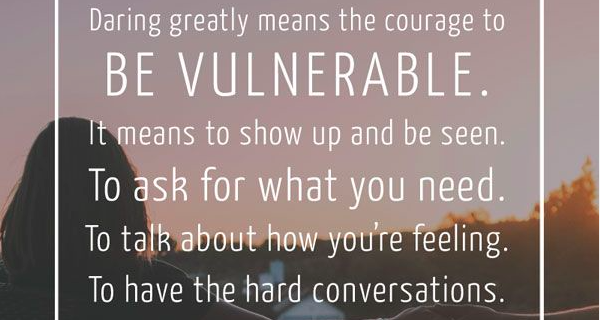
With each passing day that I am practicing in the field of mental health, speaking with people ages 8-89 I have come to realize that 99% of the time, our “problems” have to do with connection, rather disconnection. As humans, we are neurobiologically hardwired to seek connection from day 1, for survival, brain development and emotional growth. However, in the days of social networking, 40-hour weeks, texting, and instagram we appear to be more disconnected than ever. You might be thinking, well how is that possible? All these innovations create more connection. While on some level that may be true, we are more often than not connecting on a superficial level. We’re connecting on the basis of what we want people to see; a persona that we believe is the version of ourselves that people will like, literally “Like.”
“Connection is why we’re here, it’s what gives purpose and meaning to our lives.”- Brene Brown
What we know from researchers, like Brene Brown is that what underlies our struggle to connect authentically is shame. Shame creates a deep fear of disconnection stemming from questions of worthiness: Do I belong? Am I worth it? If others know the real me, will they still like me? This fear of unworthiness is the main reason we stay disconnected.
So in a society where the more we connect online the more we become disconnected from an authentic experience of ourselves and others, what is the remedy? Vulnerability.
“In order to connect to others we have to allow ourselves to be seen.”- Brene Brown
Putting all parts of ourselves on the table, even the one’s that we struggle to accept, may be the riskiest thing to do, as it opens up the possibility for disappointment, criticism and even rejection. Yet, it also has the potential to be the most rewarding, for there is no higher form of connection than when we are seen in our entirety and accepted for who we truly are.
For most of us, this feels far too risky.
Dr. Brown discusses multiple ways that we cope with the discomfort of vulnerability, but it’d like to highlight two of those:
1. Numbing
2. Perfection
Vulnerability can be so foreign and uncomfortable to us, maybe because we were raised in a family where it wasn’t modeled or it was even frowned upon, or maybe just because it is human nature to fear disconnection. Regardless, one of the main ways we adapt to this discomfort is by numbing negative feelings and emotions. Numbing can take the form of ignoring our experience, diminishing our experience, inserting laughter where there is pain or using drugs and alcohol to temporarily remove us from our own vulnerability. However, “we cannot selectively numb the bad stuff without numbing the other affects or emotion.” So when we numb the negative, we also numb the positive and deprive ourselves of joy and happiness and wonder why we are searching for purpose and meaning in our lives.
We also deal with vulnerability through perfection, by being the best at our job, by having the “perfect” relationship, by creating the “perfect” body, etc. While this perfectionism may feel like the most efficient way to fend off any possibility of being rejected, it is the very reason why people struggle to connect. People don’t connect with perfect, people connect with tenderness and authenticity.
Therefore, vulnerability is NECESSARY, not necessarily comfortable, but necessary for connection and risk taking that promotes happiness and joy.
So my challenge to each of us is let yourself be seen, because in that vulnerability we will find not only connection, but also the full range of feelings and experiences that make us truly alive.
This article was inspired by Brené Brown’s Ted Talks presentation.



